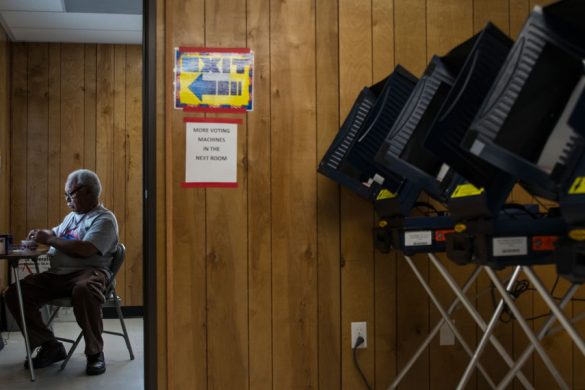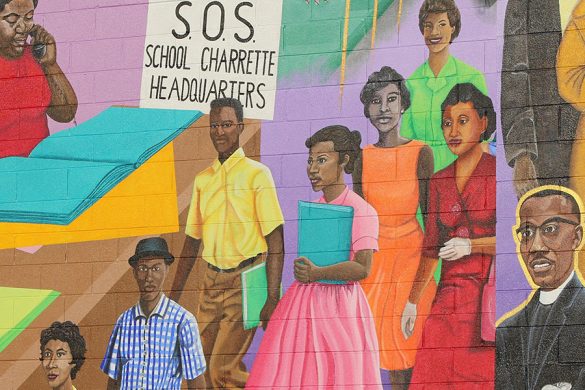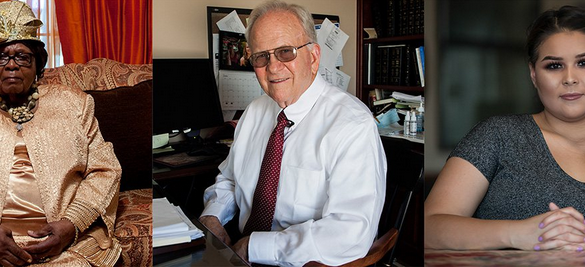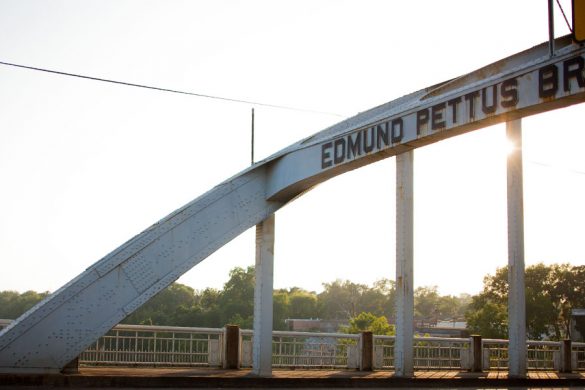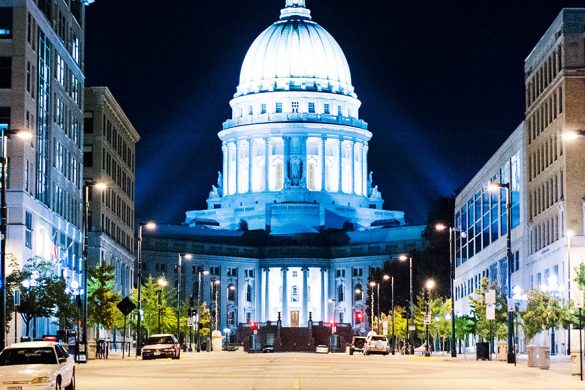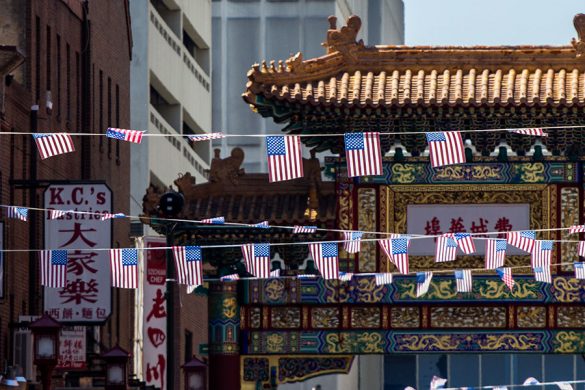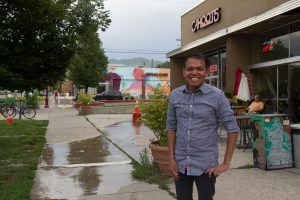
Christopher Cooke, 28, stands on Harvey Milk Boulevard, a street renamed in honor of the LGBT activist, in Salt Lake City. (Photo by Natalie Griffin/News21)
SALT LAKE CITY – Members of the LGBT community in Salt Lake City have pushed for change in Utah.
In the past year, the city has elected an openly lesbian mayor and a gay city council member. The two joined Salt Lake City Councilman Stan Penfold – Utah’s first openly gay council member – and state Sen. Jim Dabakis – who represents Salt Lake County and is the only openly gay member of the state Legislature – in representing the Salt Lake community.
On June 28, Utah Democrats elected Misty Snow, a transgender woman and Salt Lake City resident, as their U.S. Senate nominee. She will face Republican Sen. Mike Lee in the November general election.
Salt Lake County contributed 18,743 of her 28,928 votes, according to preliminary election results from the Utah Lieutenant Governor’s election office.
Salt Lake City has the seventh-highest percentage of adult residents who identify as lesbian, gay, bisexual or transgender – at 4.7 percent – of the Top 50 metro areas, according to a 2015 Gallup poll. Members of the LGBT community said it is gratifying to see the change in representation reflect the population.
“Both my (city) representatives are gay now, which is really awesome,” said Christopher Cooke, a Salt Lake County Democratic Party employee. “To see that kind of change happen in Salt Lake was huge.”
Cooke, a longtime advocate for LGBT rights, attributed these changes to civic participation and community education.
“Overall, you’re not going to make those massive movements go unless you’re doing it from a two-prong approach,” he said. “And that includes getting people out to register to vote but also doing the education for individuals who might be swayed to vote one way.”
Ash Boyer, a gay Salt Lake City resident, voted in last month’s primary election – which included local, state and national candidates – and sees local positions as avenues for change.
“You have to start voting all the time for everything from city council on up because that’s how you get your voice heard,” Boyer said. “The reason I think a lot of people feel ignored is because we haven’t always been voting. And so nobody’s been listening because we haven’t been talking.”
Change in Salt Lake City has not come quickly. The city is a liberal pocket in the middle of conservative Utah, where lawmakers have clashed over nondiscrimination laws. The Church of Jesus Christ of Latter-day Saints, headquartered in Salt Lake City, has preached tolerance toward the LGBT community but has struggled to send a clear message on LGBT rights.
State Democrats and Republicans came together to pass a monumental compromise nondiscrimination bill backed by LDS leaders in March 2015. The bill made housing and employment discrimination based on sexual orientation or gender identity illegal but implemented religious freedom provisions exempting religious institutions and individuals from certain requirements.
Some LGBT activists argued this law does not go far enough to protect the community and strips local government authority, according to The Washington Post. The law stipulated that it supersedes any local action “that relates to the prohibition of discrimination in employment (or housing),” meaning local bodies, such as the Salt Lake City Council, cannot create nondiscrimination laws without the same religious exemptions.
In November, the LDS Church released a new policy, prompting backlash from LGBT activists and LDS members, according to The Salt Lake Tribune. Partners in same-sex marriages could be considered apostates – an excommunicable offence – and children in same-sex households could be barred from certain religious practices.
Boyer said the LGBT community’s vote is powerful, but it is important to understand that change is often gradual.
“It’s easy to get frustrated when you vote for the president and then you’re not able to get all of the changes that you wanted or even most of the changes that you wanted,” Boyer said. “So there is that disconnect between immediate gratification and the importance of voting.”
Cooke said he got involved in the LGBT rights movement in high school, when the state Legislature attempted to ban gay-straight alliance clubs.
“It sparked my interest just because of the fact that we’re a young population, and we’re definitely a minority population, and we’re getting targeted by a bunch of people. And I feel like that was very unfair and not warranted,” Cooke said.
He said he is surprised at how far the city has come. In May, a downtown street was renamed Harvey Milk Boulevard for the California LGBT activist and politician who was shot and killed in 1978.
For Boyer, his activism started later in life.
Boyer was raised in a conservative LDS home, and he said he took a risk when he came out to his parents about two years ago. But he was surprised at the level of acceptance and tolerance he received. Then he began advocating for the community to raise their voices.
“It kind of made me want to expand that feeling of acceptance to as many people as possible, and I think that voting is the best way to do that for the most people at the same time,” Boyer said. “It’s super easy as a minority to be ignored by the majority. … If I’m not voting, I’m not making my elected officials realize that I exist, and I’m one of their constituents, too.”
